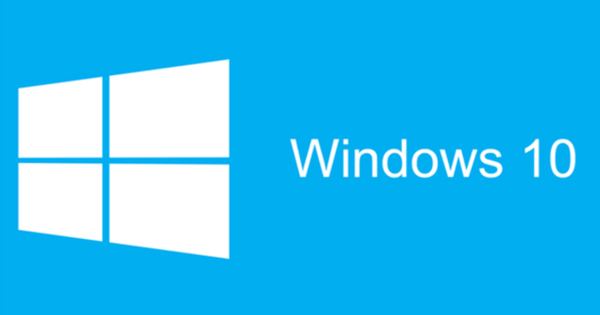Spotify and Netflix make it very easy these days to quickly watch a movie or listen to some music, and that is completely legal. Nevertheless, a lot is still downloaded, even though the law is against it. The fear is that even 'download fines' will soon be handed out. Dutch Filmworks (DFW) is trying to work on that. Can we really expect a download fine from DFW, or is that pure scaremongering?
Downloading is still very popular, and there is a good chance that you have also downloaded a movie or series yourself. Sometimes that is because films are expensive, more often because they are (almost) not legal to watch in the Netherlands. For example, you can only watch Game of Thrones in the Netherlands if you are a Ziggo subscriber and purchase the most expensive television package. It is not for nothing that HBO's hit series is invariably number one of most downloaded series every year.
But even if it's unreasonably expensive or complicated to watch legally, that doesn't mean you can just throw your torrent program around.
Private copying levy
Downloading is prohibited in the Netherlands. We can't make it more beautiful. In the past, downloading a film, series or song was still allowed, because that was allowed 'for your own use'. If you bought something legally, such as a CD, DVD or blank discs, you paid a small amount on top of that, the so-called home copy tax. It was intended to compensate artists for piracy and the fact that people regularly made copies for themselves at home.
However, many of those artists (and their labels or production companies) found the private copying levy too low. That would not be enough to compensate for the major damage the industry suffered from piracy. Some of them, notably Sony and Philips, decided to file a lawsuit that went all the way to the European Court of Justice. In 2014, this definitively concluded that the private copying levy is not an adequate protection against illegal downloading, and that downloading was therefore no longer allowed. A salient detail: the private copying levy has never disappeared.

Download Ban
Since then it has been prohibited to download copyrighted material 'from illegal sources'. In practice, these are websites that are mainly made to offer as much of such material as possible. The ban also includes streaming via popular services such as Popcorn Time.
What a ban means in practice is another story. There is a difference between not being allowed to do something and not doing something. What is the sanction? Will you be fined? And from whom? The police? Rights holders, such as Stichting Brein, are not allowed to hand out fines: that is up to judges.
The struggle of the Brain Foundation
In the Netherlands there is one important party that fights against downloading. Stichting Brein, led by Tim Kuik, is a private interest organization that stands up for copyrights and their owners. Film companies, record labels and individual artists outsource the fight against illegal downloading to Brein.
That claims quite a few successes. The news regularly shows that Brein tackles large uploaders, takes services offline, or fines sellers of, for example, ready-to-use streaming boxes.
The most famous battle is against The Pirate Bay. Brein went to court to have the notorious download site banned. After a legal battle that lasted for years, that ban was also made. Initially only for Ziggo and XS4ALL, later for all other Dutch providers.
Pirate Bay blocked
The blockade of The Pirate Bay is not difficult to get around. There are plenty of proxy services, VPNs and alternative download sites to download anyway. Nevertheless, according to Brein, the blockade is a success. The foundation points to a report that concludes that the Pirate Bay blockade did have an effect on the number of illegal downloads. Critics, however, have reservations about this. For example, it was not measured whether there is also a connection with the emergence of accessible legal services, and it cannot be concluded one-on-one that downloaders do not go to atlernative websites.
Yet that is less important for Brein. That is not surprising: Brain also knows that stopping downloading is fighting against the beer quay. In the podcast With Nerds Around the Table Tim Kuik confirmed that sentiment. "There is a trade-off between making illegal downloading inaccessible and making legal offerings more accessible." The goal of Brein is not to completely exterminate downloaders, "but to prevent the fence from hitting the dam and every Dutch person downloading."

Whether/not chasing individual downloaders
Brain has always said that he wants to go after 'the big boys'. Users who upload movies to The Pirate Bay on a large scale, sellers of boxes with Kodi (and plugins) on them, the many forks of Popcorn Time... Individual downloaders may be wrong, but are generally tolerated.
That will change. In the same podcast episode, Tim Kuik also said it's quite possible that individual downloaders will be dealt with in the future. That will probably not be done by Brein itself, but by "an interplay of parties."
Brain's goal isn't to completely eradicate piracy, but to make it much harderDownload 'fines'
There is already one such initiative. Dutch Filmworks, the production company of major Dutch blockbusters, does not think that Brein's approach is comprehensive enough. The company already announced in 2017 that it was going after downloaders itself, without the help of Brein. That was not an impulsive decision: the company already talked about it in 2015.
Dutch Filmworks wants individual downloaders to be punished with a sum of money. In practice this is called a 'download fine', but in fact it is not quite that. It is a settlement proposal, because Dutch Filmworks is also not allowed to hand out fines. 'Pay this amount, otherwise we will go to court', is the message. Going to court like this is a scary threat: it can be expensive for the convicted person, especially if he also has to pay the legal costs. And that you lose that lawsuit as a downloader is plausible.
Detection
Such 'fines' already exist in Germany. They are expensive: 800 euros for a film, or 500 for an episode of a series. Dutch Filmworks finds that too expensive. CEO Willem Pruijssers previously talked to BNR about 'about 150 euros', an amount that not only covers the damage caused by lost income, but also the extra costs incurred by the company for the investigation.
However, this detection proves difficult in practice. First, Dutch Filmworks had to find out who exactly had downloaded something. The company did this by collaborating with a German company that could retrieve IP addresses from peer-to-peer traffic. It received permission from the Dutch Data Protection Authority for this.
Guilty unless proven otherwise?
It turned out to be more difficult to subsequently find out the name and address details behind those IP addresses. For that, Dutch Filmworks has to go to the providers. They said in 2015 that they would not cooperate voluntarily. Now, however, the judge has also put a stop to that.
Dutch Filmworks cannot prove that the person behind an IP address is actually the downloader. An internet connection can be shared with family, or with other people such as in student houses. As a result, DFW cannot prove whether they can get hold of the downloader with the name and address details of the IP address. You are not liable for a possible breach that others make on your network.
That is precisely the argument that Willem Pruijssers initially did not like. "If you lend your car and the driver drives too fast, you get the ticket," he drew as an analogy.
The judge also dismissed the download fine (the settlement amount) of 150 euros per infringement because it lacks substantiation about the amount.
Picture of the future
The company does not yet know what the next steps for Dutch Filmworks will be. "We are still in talks with our lawyers and will come back to that later," said a company spokesperson.
Whether those download fines will actually come is therefore the question. In any case, Dutch Filmworks has shown that it can go further than most other parties, but there are also many obstacles, for which it is not yet clear whether these can be overcome.

